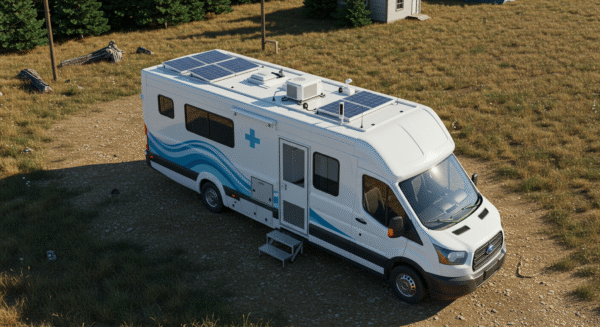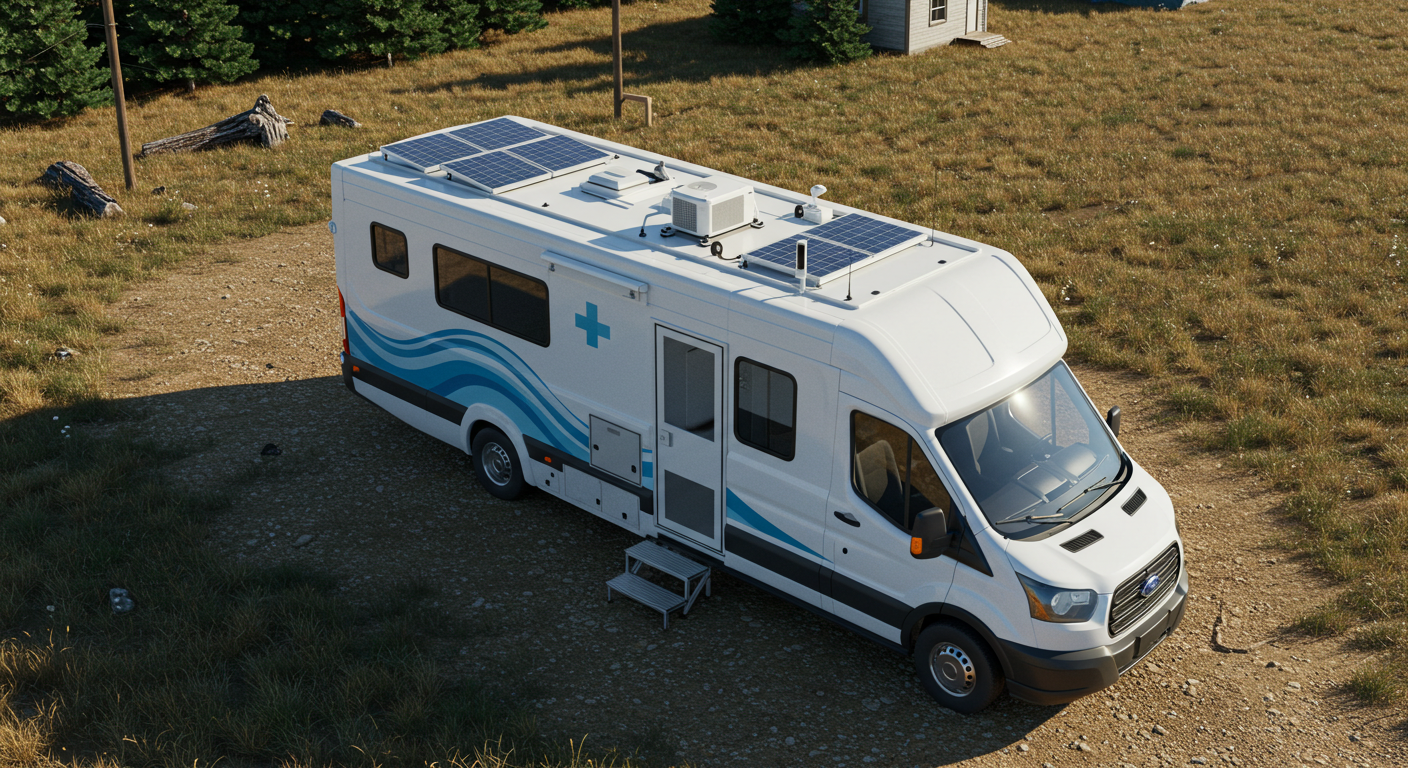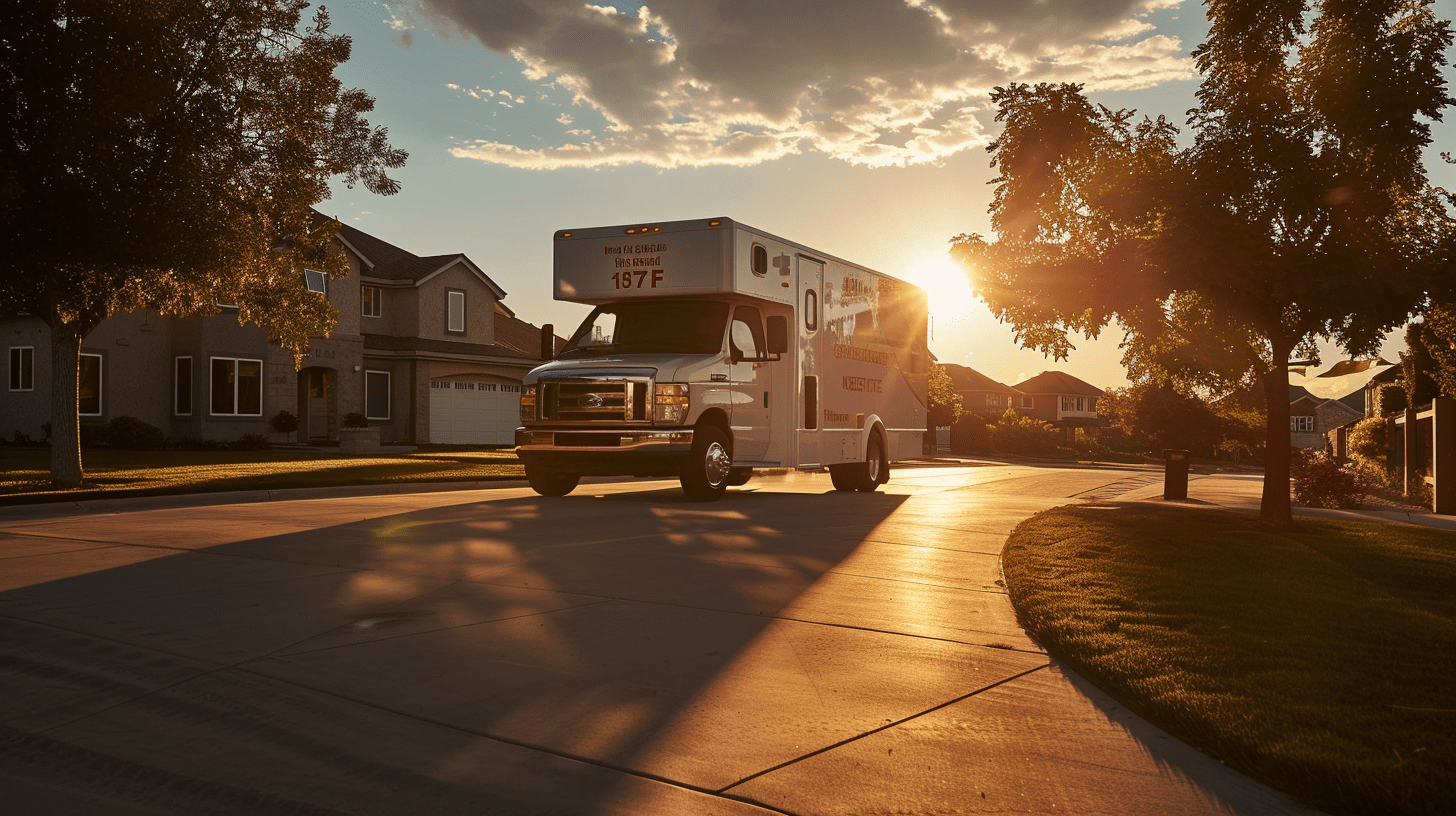Mobile clinics are changing how healthcare reaches people, especially those in hard-to-reach areas. These clinics are like small hospitals on wheels, offering many medical services to communities that might not have easy access to healthcare. But running these clinics involves a lot of planning and money. This guide will help you understand all the costs and efforts needed to keep a mobile clinic going.
Key Takeaways
- Starting a mobile clinic requires careful planning and budgeting for initial setup costs, including the vehicle and medical equipment.
- Ongoing expenses like fuel, maintenance, and staff salaries are crucial to keep the clinic running smoothly.
- Funding sources such as grants, donations, and partnerships with local organizations can help cover costs.
- Hiring and training qualified staff ensures the clinic can provide high-quality care to the community.
- Regularly evaluating the clinic’s impact helps in making necessary adjustments and showing the value to stakeholders.
Financial Considerations for Mobile Clinics
Budgeting for Initial Setup
Starting a mobile clinic involves several upfront costs. These include purchasing the vehicle, medical equipment, and technology needed to provide care. Here’s a simple breakdown of potential initial expenses:
| Item | Estimated Cost ($) |
|---|---|
| Vehicle Purchase | 50,000 – 150,000 |
| Medical Equipment | 30,000 – 100,000 |
| Technology Setup | 10,000 – 30,000 |
| Licensing and Permits | 5,000 – 10,000 |
| Initial Supplies | 5,000 – 15,000 |
Ongoing Operational Expenses
Running a mobile clinic isn’t just about the initial setup. There are continuous costs to consider, such as:
- Staff Salaries: Paying doctors, nurses, and administrative staff.
- Fuel and Maintenance: Keeping the vehicle in good condition and fueled up.
- Medical Supplies: Regularly restocking medications and other supplies.
- Insurance: Covering the vehicle, equipment, and liability.
- Technology Upkeep: Maintaining and updating software and hardware.
Funding Sources and Grants
Finding money to start and run a mobile clinic can be challenging. However, there are several ways to get funding:
- Government Grants: Many governments offer grants for healthcare initiatives.
- Non-Profit Organizations: Some non-profits provide funding for mobile health services.
- Community Fundraising: Engaging the community to support the clinic through donations.
- Partnerships: Collaborating with local businesses or hospitals for financial support.
It’s crucial to explore all available funding options to ensure the sustainability of the mobile clinic. Diversifying funding sources can help mitigate financial risks and ensure continuous operation.
Staffing and Training Requirements
Hiring Qualified Personnel
To run a mobile clinic, you need a team of skilled professionals. This includes doctors, nurses, and administrative staff. Finding the right people is crucial because they will be the face of your clinic. Look for individuals who are not only qualified but also passionate about serving the community.
Training for Mobile Healthcare Delivery
Training is essential for your staff to handle the unique challenges of a mobile clinic. They need to be prepared for different environments and situations. Training should cover medical procedures, patient interaction, and the use of mobile clinic equipment.
Retention Strategies for Staff
Keeping your staff happy and motivated is important. Offer competitive salaries, benefits, and opportunities for career growth. Regular team-building activities and open communication can also help in retaining your staff. A happy team means better service for your patients.
Equipment and Technology Investments
Essential Medical Equipment
Outfitting a mobile clinic with the right medical equipment is crucial. Key items include examination tables, diagnostic tools, and emergency care devices. Here’s a list of essential equipment:
- Examination tables
- Blood pressure monitors
- Stethoscopes
- Portable ultrasound machines
- ECG machines
- Defibrillators
- Basic surgical instruments
Telehealth Capabilities
Telehealth technology allows mobile clinics to extend their reach. This includes video conferencing tools, secure data transmission systems, and remote monitoring devices. Telehealth can significantly enhance patient care by providing access to specialists who are not physically present.
Maintenance and Upgrades
Regular maintenance and timely upgrades are vital to keep the equipment in top condition. This includes:
- Routine checks and servicing of medical devices
- Software updates for telehealth systems
- Replacing worn-out or outdated equipment
Investing in high-quality equipment and technology not only improves patient care but also ensures the clinic operates smoothly and efficiently.
Regulatory Compliance and Licensing
Understanding Local Regulations
Operating a mobile clinic requires a thorough understanding of local regulations. These rules can vary widely depending on the region. It’s crucial to research and comply with all local health and safety standards to avoid legal issues. This includes zoning laws, health department requirements, and vehicle standards.
Licensing Requirements for Mobile Clinics
To legally operate, mobile clinics must obtain the necessary licenses. This often involves:
- Healthcare Provider Licenses: Ensuring all medical staff are licensed to practice in the state.
- Vehicle Licenses: Registering the mobile clinic as a medical vehicle.
- Operational Permits: Securing permits for specific services offered, such as vaccinations or lab tests.
Insurance Considerations
Insurance is a critical aspect of running a mobile clinic. You will need various types of insurance, including:
- Liability Insurance: Protects against claims of malpractice or injury.
- Vehicle Insurance: Covers the mobile unit itself in case of accidents or damage.
- Property Insurance: Safeguards medical equipment and supplies.
Ensuring comprehensive insurance coverage helps protect your clinic from unforeseen financial risks.
Community Engagement and Outreach
Building Relationships with Local Organizations
Creating strong ties with local groups is key for a mobile clinic’s success. Partnering with community organizations can help identify the specific needs of the area and ensure that services are well-received. These partnerships can also provide valuable resources and support, such as volunteers or additional funding.
Marketing Strategies for Mobile Clinics
Effective marketing is essential to raise awareness about the mobile clinic’s services. Use a mix of traditional and digital marketing methods to reach a broad audience. Flyers, social media posts, and local radio ads can all be effective. Word-of-mouth referrals from satisfied patients can also significantly boost the clinic’s reputation.
Assessing Community Needs
Understanding the community’s needs is crucial for providing relevant services. Conduct surveys, focus groups, and community meetings to gather input. This data helps tailor the clinic’s offerings to meet the most pressing health concerns of the community. Regularly updating this information ensures that the clinic remains responsive and effective.
Impact Measurement and Evaluation
Setting Key Performance Indicators
To understand how well a mobile clinic is doing, you need to set clear goals, also known as Key Performance Indicators (KPIs). KPIs help track progress and measure success. Some common KPIs for mobile clinics include the number of patients seen, types of services provided, and patient satisfaction levels.
Collecting and Analyzing Data
Gathering data is crucial for evaluating the clinic’s impact. This can be done through patient surveys, electronic health records, and service usage logs. Once collected, the data should be analyzed to identify trends and areas for improvement. Regular data analysis helps in making informed decisions.
Reporting Outcomes to Stakeholders
Sharing the results with stakeholders, such as funders, community partners, and staff, is essential. This can be done through reports, presentations, or newsletters. Transparent reporting builds trust and supports future funding and collaboration.
Regularly measuring and evaluating the impact of your mobile clinic ensures that you are meeting community needs and improving healthcare access.
Logistical Challenges and Solutions
Route Planning and Scheduling
One of the biggest challenges for mobile clinics is planning the best routes and schedules. Efficient route planning ensures that the clinic reaches the maximum number of patients. This involves considering traffic patterns, road conditions, and the locations of underserved communities. Using route optimization software can help in creating the most effective routes.
Managing Supply Chain Logistics
Keeping the mobile clinic stocked with necessary supplies is crucial. This includes medical supplies, medications, and even fuel for the vehicle. A well-organized supply chain ensures that the clinic never runs out of essential items. Regular inventory checks and partnerships with reliable suppliers can help maintain a steady flow of supplies.
Addressing Transportation Issues
Transportation issues can range from vehicle breakdowns to navigating difficult terrains. Regular maintenance of the clinic vehicle is essential to prevent breakdowns. Additionally, having a backup plan, such as a secondary vehicle or partnerships with local transportation services, can ensure that services are not interrupted.
Ensuring the smooth operation of a mobile clinic requires meticulous planning and the ability to adapt to unexpected challenges. By addressing these logistical issues, mobile clinics can provide consistent and reliable healthcare services to those in need.
Conclusion
Operating a mobile clinic is a complex but rewarding endeavor. While the costs can be high, the benefits to underserved communities are immense. By understanding and managing these costs, healthcare providers can ensure that mobile clinics remain a viable and effective solution. These clinics bring essential medical services directly to those who need them most, breaking down barriers to healthcare access. With careful planning and resource management, mobile clinics can continue to improve health outcomes and provide critical care to communities in need.
Frequently Asked Questions
What is a mobile clinic?
A mobile clinic is a specially designed vehicle equipped with medical tools and technology. It travels to different locations to provide healthcare services to people who may not have easy access to traditional healthcare facilities.
How much does it cost to set up a mobile clinic?
The cost to set up a mobile clinic can vary widely depending on the type of medical services it will offer. Generally, it can range from $150,000 to over $500,000, including the vehicle, medical equipment, and initial supplies.
What types of services can a mobile clinic provide?
Mobile clinics can offer a variety of services such as medical consultations, diagnostic tests, preventive care, vaccinations, and even specialized services like dental care or mental health support.
How are mobile clinics funded?
Mobile clinics can be funded through a mix of sources including government grants, private donations, non-profit organizations, and sometimes even corporate sponsorships.
What are the staffing requirements for a mobile clinic?
Staffing requirements can vary, but a typical mobile clinic might include a doctor, nurse, medical assistant, and sometimes specialists like a dentist or mental health counselor. Administrative staff may also be needed for scheduling and patient records.
Are there any legal requirements for operating a mobile clinic?
Yes, operating a mobile clinic involves meeting various legal requirements including local health regulations, licensing for medical staff, and vehicle permits. It’s also important to have insurance coverage for both the vehicle and medical practice.









